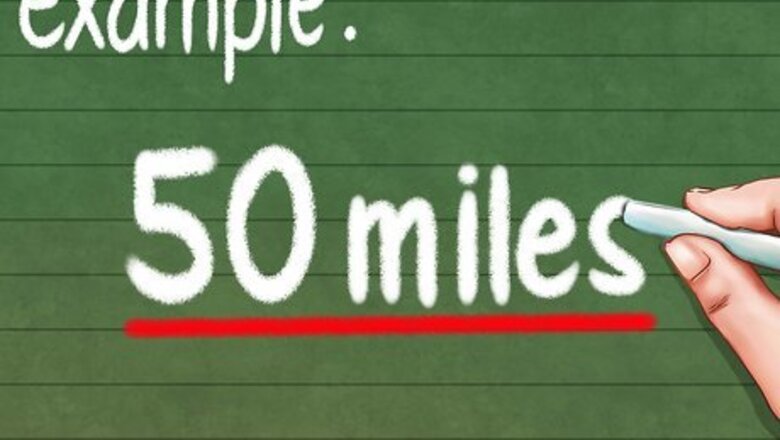
views
Basic Conversions
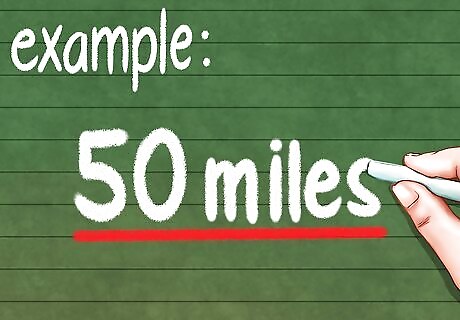
Write the number of miles. In this section, you'll learn how to get kilometers from miles. Start by writing the number of miles you want to convert. If you're using a calculator, type it in. Let's follow along with an example. If we want to convert 50 miles into kilometers, we would start by writing it out like this: 50 miles.
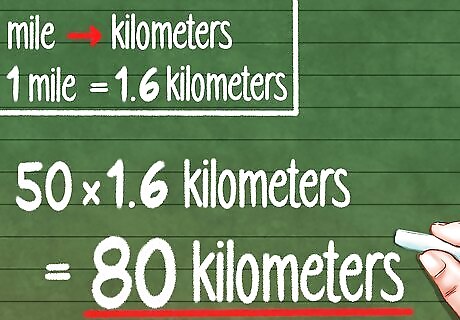
Multiply by 1.6. Your answer will be the number of kilometers in miles. That's all there is to it! In our example, we can find the answer like this: 50 × 1.6 = 80 kilometers. Don't forget the "kilometers" label. You can also write "km" for short. If you're doing this for homework, you may lose points if you leave it off. If you need help multiplying decimals, see WikiHow's How to Multiply Decimals.
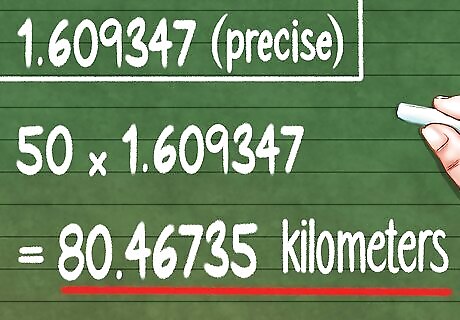
For precise conversions, multiply by 1.60934. One mile isn't exactly 1.6 kilometers. It's actually about 1.609347218694. This is the official U.S. Survey definition. Use as much of this number as you want to get your answer more precise. If we want to know exactly how far 50 miles is in kilometers, we can just multiply 50 by 1.609347. This gets us 50 × 1.609347 = 80.46735 kilometers — about half a kilometer more. You only need to do this for really precise conversions. Just use 1.6 for basic purposes!
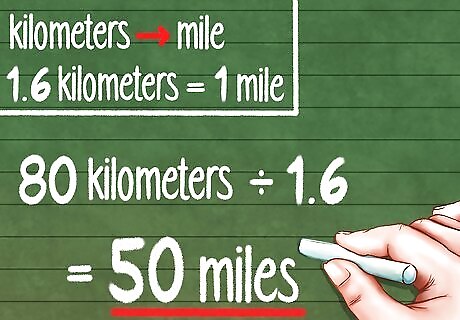
To get back to miles, divide by 1.6. Getting back to miles is easy. Since dividing is basically the opposite of multiplying, divide by 1.6 to "undo" the multiplication. In our original example, 80/1.6 = 50 miles — right back where we started. If you used a different decimal than 1.6, divide by it instead. In our alternate example above, we would divide by 1.609347.
Using Conversion Factors
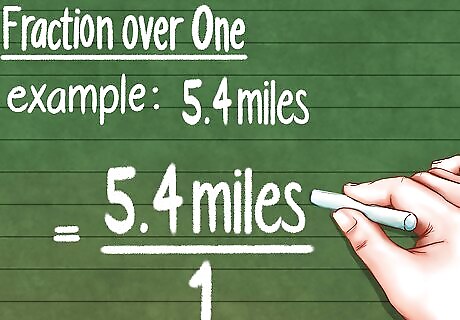
Write the number of miles as a fraction over one. By treating your measurements like fractions, you can convert in a way that makes it easy to get the right answer (and units) every time. Start by writing your number of miles as the top part of a fraction (the numerator). In the bottom part of the fraction (the denominator), write a 1. Let's say that we want to figure out how many kilometers are in 5.4 miles. In this case, we would write a fraction like this: 5.4 miles/1. When you're converting this way, always include the units in the fractions. They will be important later.
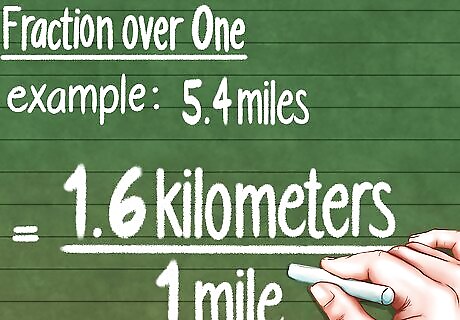
Write a fraction with the ratio of kilometers to miles. Now, you want to make a fraction that shows how many kilometers are in a mile. This is a lot easier than it sounds — see below for help. We already know that there are about 1.6 kilometers in a mile. We can use this to build our fraction. In the numerator (the top part), we would write "1.6 kilometers" and in the denominator (the bottom part), we would write "1 mile." This gives us 1.6 kilometers/1 mile.
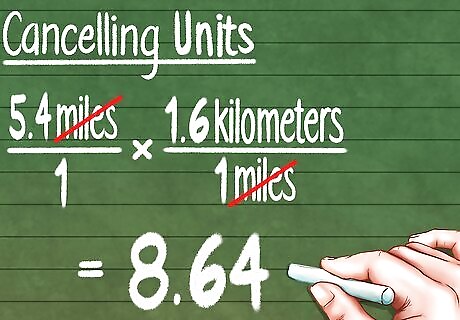
Multiply and cancel units that show up both on top and on bottom. Now, just multiply the two fractions. See our article on multiplying fractions if you need help. As you multiply, look for units that show up once in the numerator and once in the denominator. When you find a pair, cross both out. In our example, we have 5.4 miles/1 × 1.6 kilometers/1 mile. "Mile" appears on top in the first fraction and on the bottom in the second, so we can cross both "miles" out. Multiplying, we get 8.64.
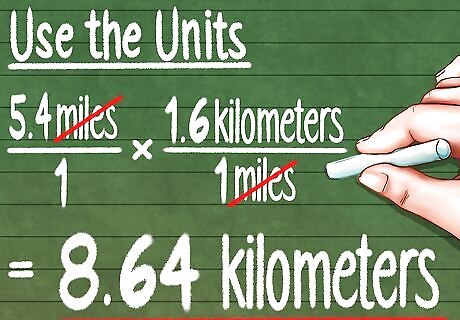
Use the units that are left for your answer. In the last step, you should have crossed out all of the units except for one. These are the units in your answer. In our example, "kilometers" are the only units not crossed out, so we know our answer is 8.64 kilometers.
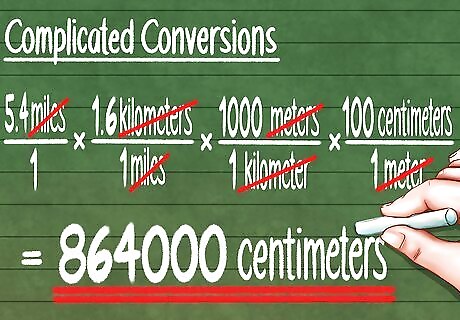
Continue this pattern to build more complicated conversions. Now that you know how to do easy conversions, you can use the same approach for longer ones. Just follow the same steps. Write your starting measurement as a fraction over 1, then write your conversions as fractions so that your units cancel (except for the units you want your answer in) and multiply. For example, let's say that you want to know what 5.4 miles is in centimeters. You don't know the conversion for miles to centimeters, but you do know that there are 1.6 kilometers in a mile, 1,000 meters in a kilometer, and 100 centimeters in a meter. This is all you need to set up your problem: 5.4 miles/1 × 1.6 kilometers/1 mile × 1000 meters/1 kilometer × 100 centimeters/1 meter Notice that all of the units cancel except for centimeters (because it only appears once). Multiplying through, your final answer is 864,000 centimeters.















Comments
0 comment